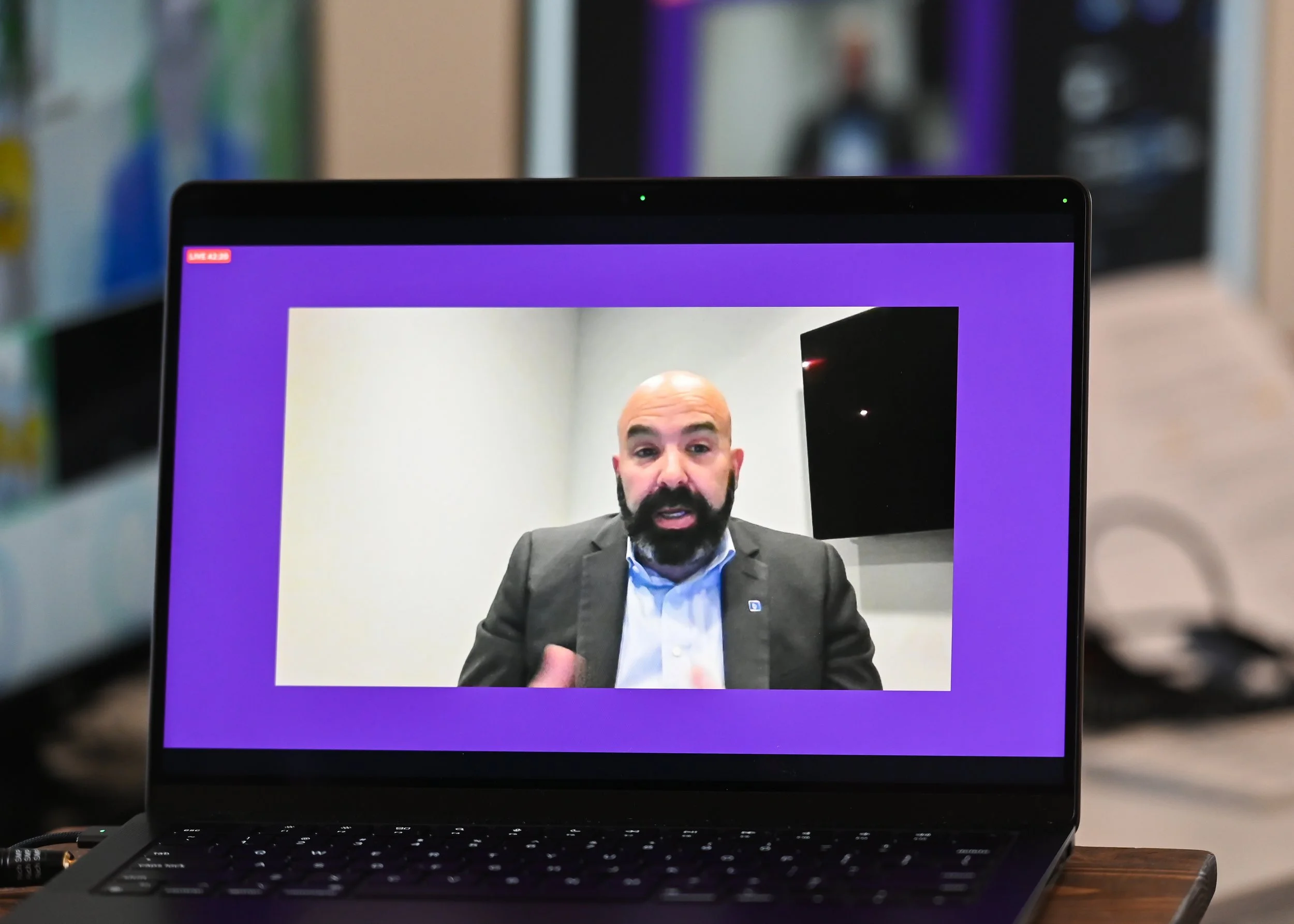Investment, infrastructure, and innovation key to improving Canada’s economic resilience, say economic experts
Canadian leaders must embrace risk and reform to build a stronger economy amidst global economic shifts and protectionist policies, said financial experts at the 2025 Coalition for a Better Future Scorecard event.
Clockwise left to right: Michael Serapio, host PrimeTime Politics, CPAC, Dawn Desjardins, Chief Economist, Deloitte Canada; Stephen Tapp, President and Chief Economist at the Centre for the Study of Living Standards; Alex Ciappara, Head Economist, Canadian Bankers Association.
PHOTO: MELANIE SHIELDS
The panel featured Dawn Desjardins, Chief Economist at Deloitte Canada; Stephen Tapp, President and Chief Economist at the Centre for the Study of Living Standards; and Alex Ciappara, Head Economist at the Canadian Bankers Association. In a discussion led by Michael Serapio, host of PrimeTime Politics on CPAC, the panel addressed challenges such as tariff impacts and the erosion of the rules-based global trading system.
Desjardins opened with a sobering outlook, saying the tariff situation “is already impacting our economy. It’s impacting our businesses.” She said when employers are asked if they intend to invest or hire, “they’re saying no, right now, which is a very responsible, I think answer, given all of this pressure.”
The Coalition’s data shows private sector investment as a share of nominal GDP has dropped to its lowest levels since the Second World War. Canadian investments in machinery, equipment, and intellectual property lag behind most G7 countries.
Desjardins emphasized that Canada must look beyond the current turbulence. “We have to shore up a culture of risk taking, a culture of trying to incorporate things like AI into processes across the entire spectrum of Canadian companies,” she urged.
Pointing to a recent Deloitte survey, Desjardins said, despite being an early leader in artificial intelligence development, only 26 per cent of Canadian firms currently use the technology. “We need to get that number up and focus on increasing adoption and commercialization,” she added.
“We have to shore up a culture of risk taking, a culture of trying to incorporate things like AI into processes across the entire spectrum of Canadian companies.”
Dawn Desjardins, Chief Economist, Deloitte Canada
Tapp highlighted the changes in Canada-U.S. relations during President Donald Trump's administration. He noted, as the rules-based global trading system is being eroded, Canada needs to concentrate on the areas it can control, such as the tax system and streamlining regulatory approvals for major projects.
“We don't know necessarily what Trump will do when he wakes up with this tariff or what rate, but we do control things internally, like our taxation system,” he said. “Reviewing that and thinking about how efficiently and how effectively we can tax investment, tax businesses, tax income earners.”
Tapp also said, that to counter external trade shocks, we “need to diversify our trade and work with like-minded countries, like with the European Union and Asia Pacific.”
Ciappara added economic renewal must include bold investments in infrastructure. “It means building big infrastructure, trade-enabling projects to get our goods, services and people to markets,” he said. “So, more ports, more railways, airports, highways and digital infrastructure to support AI, the data centers.”
He also emphasized energy resilience and the importance of accessing critical minerals in the north. “It means building an east-west electricity grid and dependable broadband for individuals in rural areas.”
Ciappara pointed to modular and prefabricated homes as solutions to improve the productivity of Canada’s lagging home construction sector. He also stressed the importance of Arctic development, saying such projects serve “the multi-purpose of developing our northern economy, protecting our sovereignty, and involving Indigenous peoples.”
When asked about the right balance between public and private investment to get projects done, Ciappara called for public-private partnerships but stressed regulators and policymakers need to be “laser-focused on the end goal” and gauge how a project or policy improves our competitiveness or productivity.
Desjardins agreed, warning government spending must not crowd out private investment. “We want to use public investment as a facilitator to get the infrastructure built that private companies can use to expand their reach, whether it's getting to new export markets or just getting to customers on the other side of our country,” she said.
“It means building big infrastructure, trade-enabling projects to get our goods, services and people to markets.”
Alex Ciappara, Head Economist,
Canadian Bankers Association
Photo: Melanie Shields
The panel also emphasized improving internal trade as a crucial factor for economic growth.
Desjardins and Tapp reinforced the importance of breaking down interprovincial trade barriers and improving labour mobility. “It's kind of low-hanging fruit…This is something we can control,” Desjardins said. “It will bolster GDP growth. So this is one thing that I think is an imperative in the near term.”
Tapp noted removing internal trade barriers will enable our domestic market to operate more efficiently and ensure "we can scale and grow inside Canada’s market, instead of having segmented markets.”
Ciappara offered the banking sector as a model for removing internal trade barriers. Because the banking sector in Canada is federally regulated, it “enables banks to operate right across the country regardless of provincial boundaries,” he said.
The panel concluded that the moment is ripe for reform. They argued decision makers and business leaders must act swiftly to harness domestic strengths and seize new opportunities to build an economy that can withstand external shocks.



